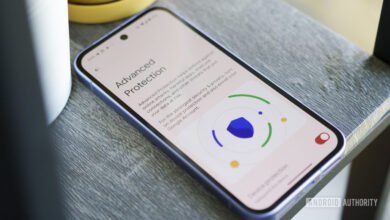Android Blocks 58% More Spam Texts Than iPhone, Google Finds

▼ Summary
– Google and YouGov surveyed over 5,000 smartphone users in the US, India, and Brazil about spam and scam texts.
– Android users were 58% more likely than iOS users to avoid scam texts, with Pixel users 96% more likely to report zero unwanted messages.
– iOS users were 65% more likely to receive three or more scam texts per week compared to Android users.
– Google attributes its success to RCS safety checks, Android’s scam defenses, AI, and built-in spam filters in apps like Messages and Phone.
– An evaluation by Leviathan Security Group found Pixel led in scam protection compared to recent Apple, Samsung, and Motorola devices.
A recent study reveals that Android smartphones demonstrate a significant advantage in blocking unwanted spam and scam text messages when compared to iPhones. Conducted by YouGov on behalf of Google, the research surveyed more than five thousand mobile users across the United States, India, and Brazil. The findings indicate that Android users experienced fifty-eight percent fewer scam texts over a one-week period than those using Apple’s iOS platform.
Owners of Google’s Pixel phones fared even better, reporting ninety-six percent fewer unwanted messages than iPhone users. On the other hand, individuals using iPhones were sixty-five percent more likely to receive three or more scam texts within the same timeframe. While Google’s sponsorship of the research may raise questions, the inclusion of YouGov as an independent polling organization lends credibility to the results.
Many users have shared personal observations that align with these statistics, noting an uptick in spam after switching to iOS. Google attributes its success to several protective measures, such as ongoing RCS safety verification, built-in anti-phishing systems, and advanced artificial intelligence algorithms. The company also emphasized the effectiveness of native spam filters within its Messages and Phone applications.
The progress is particularly noteworthy given the early vulnerabilities of RCS messaging, which Google has worked to secure over time. An additional review by Leviathan Security Group reinforced these findings, identifying Pixel devices as leading the industry in fraud protection when measured against recent models from Apple, Samsung, and Motorola. This positions Google strongly in the ongoing effort to improve mobile cybersecurity.
Although no new product announcements accompanied the study, it is evident that Google views its AI-driven tools as essential for reducing unwanted communications. Expect this focus to continue as the company further develops its security technologies in the coming years.
(Source: 9to5 Google)

